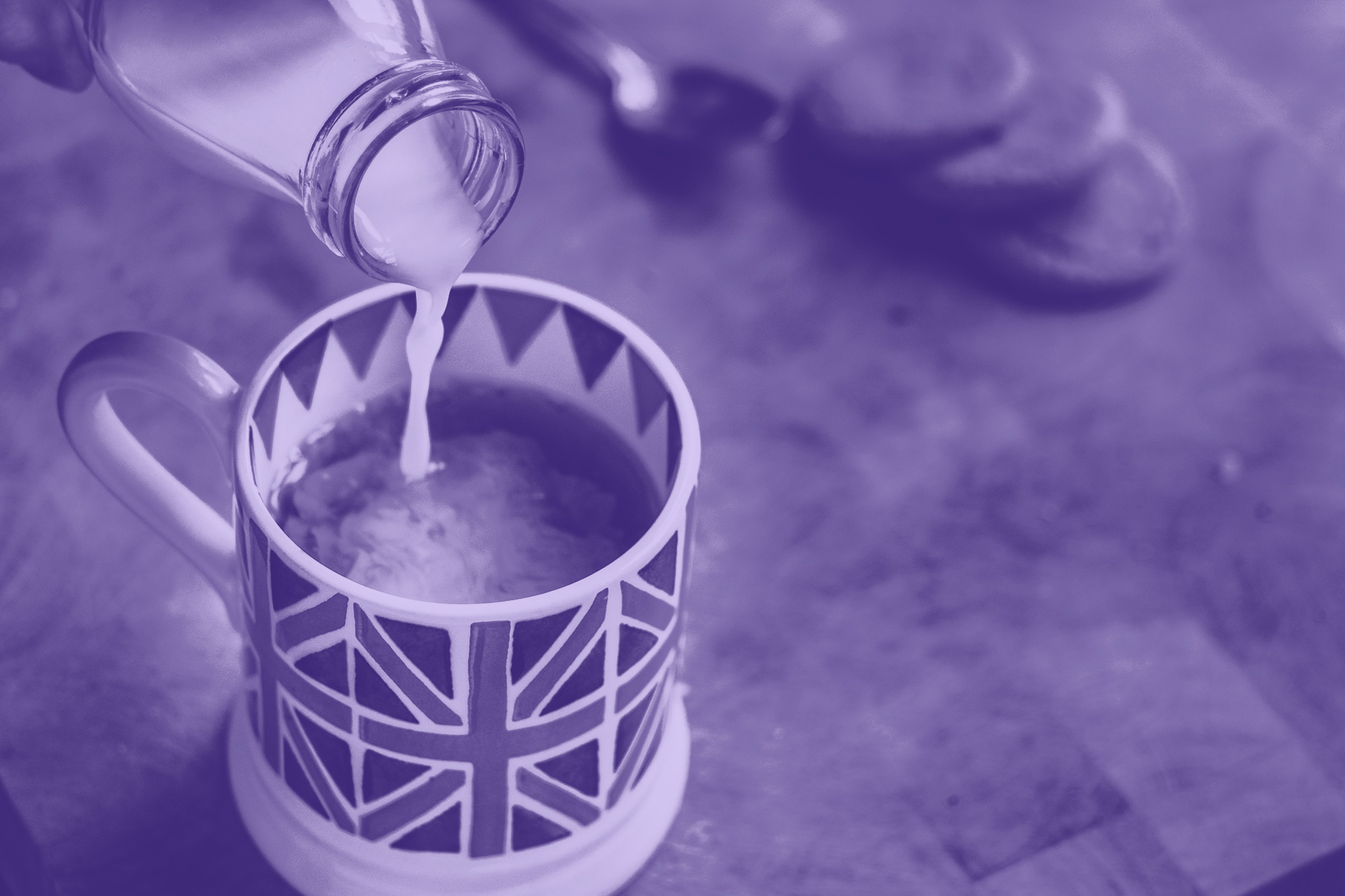Hey buddies! hoy os traemos nada más y nada menos que una lista que incluye 125 idioms y proverbios en inglés y español que os podeis descargar al final del post, con los que podrás expresarte como un auténtico nativo.
Un «idiom» o «idiomatic expression» es una frase idiomática utilizada en un lenguaje más informal y coloquial. En general, el significado de la frase en sí es diferente al significado normal de cada palabra por separado. En realidad son frases hechas, proverbios, refranes en español o lo que es lo mismo idioms, sayings, proverbs in English.
A continuación os dejamos algunos de nuestros favoritos:
In for a penny, in for a pound – De perdidos al río (que no «from lost to the river» como a veces decimos medio en broma, medio en serio)
A leopard never changes its spots – Genio y figura hasta la sepultura o también el que nace lechón muere cochino
All bark and no bite – Perro ladrador, poco mordedor
All mouth and no trousers – Mucho ruido y pocas nueces, sobre alguien que habla mucho pero hace poco
A pig with lipstick, is still a pig Aunque la mona se vista de seda, mona se queda
Be between a rock and a hard place – Estar entre la espada y la pared
Brain is better than brawn – Más vale maña que fuerza
By the skin of one’s (my/your/our) teeth – Por los pelos
The shoemaker’s son always goes barefoot – En casa de herrero, cuchara de palo
Like father, like son -De tal palo, tal astilla
Out of sight out of mind – Ojos que no ven, corazón que no siente
The squeaky wheel gets the grease – El que no llora, no mama
To call a spade, a spade – Al pan, pan y al vino, vino o lo que es lo mismo, llamar a las cosas por su nombre
You can’t have your cake and eat it too – No se puede tener todo en la vida, no puedes estar en misa y repicando
It’s all Greek to me – Me suena a chino, cuando no entiendes nada
It’s a small world – El mundo es un pañuelo
It’s the pot calling the kettle black – Le dijo la sartén al cazo
It’s water under the bridge – Es agua pasada
A continuación te dejamos el enlace para que puedas descargar un pdf con los 125 idioms y proverbios en inglés y español con los que aprender inglés será más divertido. Además te hará quedar como un auténtico nativo delante de tus compañeros. Enjoy it!
Pulsa sobre el enlace para descargar el pdf
>> Descárgate el pdf ahora <<
PS: el concurso «Propón un Idiom» ha finalizado
2 thoughts on “Descargable: 125 IDIOMS PARA HABLAR COMO UN NATIVO”
Deja una respuesta

Cuándo usar will y going to en inglés. Para hablar del futuro en inglés usamos sobre todo will y going to. En realidad es fácil, pero a veces nos liamos porque en algunos casos podemos usar tanto uno como otro, y no hay una gran diferencia de significado. No te preocupes que lo vemos paso por paso y con ejemplos para quede claro.
Will
usamos will cuando tomamos una decisión espontánea
E.g.
I’m not feeling well, I think I’ll go home.
I’m hungry. I’ll buy something to eat.
Are you going for a walk? I’ll go with you.
It’s late. I’ll finish this tomorrow.
también usamos will cuando hacemos una promesa (o nos ofrecemos a hacer algo)
E.g.
I’ll send you an email with the information.
Don’t worry, I’ll help you.
I won’t tell anyone your secret.
We’ll take care of everything.
Will y going to
podemos usar will y going to cuando hablamos de predicciones
E.g.
Look at those clouds. It’s going to rain.
I think it will rain tomorrow.
They will not win the league this season.
They are not going to win the league this season.
En estos casos, no hay una gran diferencia entre usar will o going to, aunque es cierto que usamos going to cuando de alguna manera hay evidencias o hechos que nos hacen pensar que algo ocurrirá. Por ejemplo
E.g.
I’m not feeling well. I think I’m going to catch a cold.
They haven’t played well. They are not going to win the league.
Seguimos con los diferentes usos de will y going to. Aunque hablamos de going to, recuerda que la estructura correcta completa es con el verbo to be (be going to) y necesitamos usar las correspondientes formas del verbo to be.
Going to
usamos going to para hablar de planes y cosas que tenemos la intención de hacer
E.g.
We’re going to visit Anne next week. We have planned to meet on Tuesday.
I’m going to travel to Paris in summer. I booked a nice hotel.
She’s going to accept the job offer.
I’m going to buy a house.
No usamos will para hablar de planes que ya hemos decidido con antelación. Esta es una diferencia importante para saber cuándo usar will y going to. Observa los ejemplos
E.g.
Are you going to do anything in the evening?
-I’m going to meet a friend after work. (es un plan, ya hemos quedado)
-I don’t know. I’ll (probably) go to the gym. (es una posibilidad, pero lo acabo de decidir, es una decisión espontánea)
What are your plans for the weekend?
-Next weekend I’m going to paint the house. (I bought all the things I need)
-Next weekend I’ll (probably) paint the house. (de nuevo, es una posibilidad, pero puede que lo acabe de decidir)
Observa, que cuando hemos usado will en los ejemplos, también hemos añadido (probably) para indicar que es una posibilidad, que no es algo definitivo ni que hayamos planeado con antelación.
Usamos going to y también presente continuo para hablar de planes en el futuro, en este caso, tampoco hay una gran diferencia entre usar uno y otro para hablar de cosas que hemos decidido con antelación.
E.g.
We are going to visit Anne next week. / We are visiting Anne next week.
I’m going to meet a friend after work. / I’m meeting a friend after work.
I’m going to fly to Rome tomorrow. / I’m flying to Rome tomorrow.
Como ves en estos ejemplos, queda claro que son cosas que ya habíamos planeado hacer con antelación y seguramente ya hemos quedado con alguien previamente o reservado vuelos, hoteles, etc. Más sobre el uso de presente continuo y presente simple en inglés.
Ahora que ya hemos repasado los diferentes usos de will y going to, como un breve resumen recuerda que en general usamos will y going to para hacer predicciones, usamos going to para hablar de planes y cosas que hemos decidido con antelación, pero usamos will para decisiones espontáneas que tomamos en el momento de hablar.
De todas formas, si aún así nos liamos al usarlos, no pasa nada, porque a pesar de estas diferencias al usar will y going to, un hablante nativo va a entender que hablamos del futuro en cualquiera de los casos.

Hoy te lo ponemos fácil con los phrasal verbs, para motivarte y que te sientas más cómodo al ponerlos en práctica vamos a ver phrasal verbs sobre viajar, que es un tema más ameno. Algunos seguro ya los conoces así que no hay excusas.
Check in – to register (at a hotel, at the airport).
Registrarse.
E.g.
What time do we have to check in at the airport?
¿A qué hora tenemos que registrarnos en el aeropuerto?
Check out – to leave (a hotel) after paying.
Dejar el hotel después de pagar y devolver la llave de la habitación.
E.g.
They checked out at 10a.m.
Dejaron el hotel a las 10.
Los dos siguientes no son solo phrasal verbs sobre viajar, también puedes usarlos en otros contextos y son muy útiles, cuando tienes que recoger o dejar a alguien (e.g. a los niños en el cole) Toma nota!
Pick someone up – to collect someone usually by car and take them somewhere.
Recoger, pasar a buscar.
E.g.
My sister will pick me up at the train station.
Mi hermana me recogerá en la estación de tren.
Drop someone off – to take someone to a place and leave them there.
Dejar.
E.g.
I can drop you off at the airport this afternoon.
Puedo dejarte en el aeropuerto esta tarde.
Get in – to arrive (usually a plane, a train).
Llegar
E.g.
Their train got in after five o’clock.
Su tren llegó después de las cinco.
Get on / off – to enter or to leave a vehicle (bus, train, plane).
Subir, bajar (de un bus, tren, avión)
E.g.
I think we got on the wrong bus.
Creo que nos hemos subido en el bus equivocado.
You will need to get off at Lime Street stop.
Tendrás que bajar en la parada de Lime Street.
Hop on / off – to enter or to leave a vehicle (more informal)
Subir, bajar (de un vehículo).
A hop on-hop off bus – se usa a menudo en autobuses turísticos donde puedes subir y bajar varias veces con el mismo billete para hacer un recorrido turístico.
E.g.
She was hopping on and off the bus to visit the city most important places.
Subía y bajaba del autobús para visitar los lugares más importantes de la ciudad.
With one ticket you can hop on and off as you like.
Con un billete puedes subir y bajar cuando quieras.
De todos estos phrasal verbs sobre viajar éste es nuestro favorito, get away, porque ¿a quién no le gusta hacer una escapada de vez en cuando?
Get away – to go somewhere often for a break or a holiday.
Hacer una escapada.
E.g.
They are planning to get away for a few days in September.
Están planeando hacer una escapada de unos días en septiembre.
Hold up – delay (when travelling).
Retrasarse, demorarse.
E.g.
He got held up in traffic and missed the bus.
Se retrasó por el tráfico y perdió el autobús.
Hurry up – to rush, to do something more quickly.
Darse prisa.
E.g.
If you don’t hurry up, we are going to be late.
Si no te das prisa vamos a llegar tarde.
Look forward to – to be excited about something that is going to happen.
Esperar algo con impaciencia.
E.g.
I’m looking forward to the holidays.
Ver más sobre éste y otro verbos con look.
See off – to go to the airport, train station etc to say goodbye to someone.
Despedir, decir adiós a alguien.
E.g.
We’ll see you off at the airport.
Te iremos a despedir al aeropuerto.
Set off – to start a journey.
Comenzar un viaje, salir de viaje.
E.g.
He sets off for India tomorrow morning.
Sale de viaje a India mañana por la mañana.
Stop over – to stay somewhere for a short time during a long journey.
Hacer parada.
E.g.
I wanted to stop over in Bali on the way to Australia.
Quería hacer parada en Bali, de camino a Australia.
Take off – when a plane leaves the ground.
Despegar (un avión).
E.g.
After a 5 hours delay finally the plane took off.
Después de un retraso de 5 horas, finalmente el avión despegó.
Éste y otros phrasal verbs con take
Turn back – to return.
Volver, regresar.
E.g.
Has she turned back from holiday yet?
¿Ha vuelto ya de las vacaciones?
¿Cuántos de estos phrasal verbs sobre viajar conocías ya?
Ya sabes, si estás pensando en hacer una escapada, to get away puedes aprovechar también para practicar con estos phrasal verbs sobre viajar


The colloquial expressions are so usefull «tools» but hard to use when we are not familiar with them. I´m on the road for getting the most knowledge as possible. I really aprecciate your help. Blessings!!!
Hi Eliseo, thanks for your comment. Happy that it helps! As you said, these colloquial expressions help us sound more natural, although they are not so easy to use. Learn one or two at a time and get confident in using them before learning new ones.